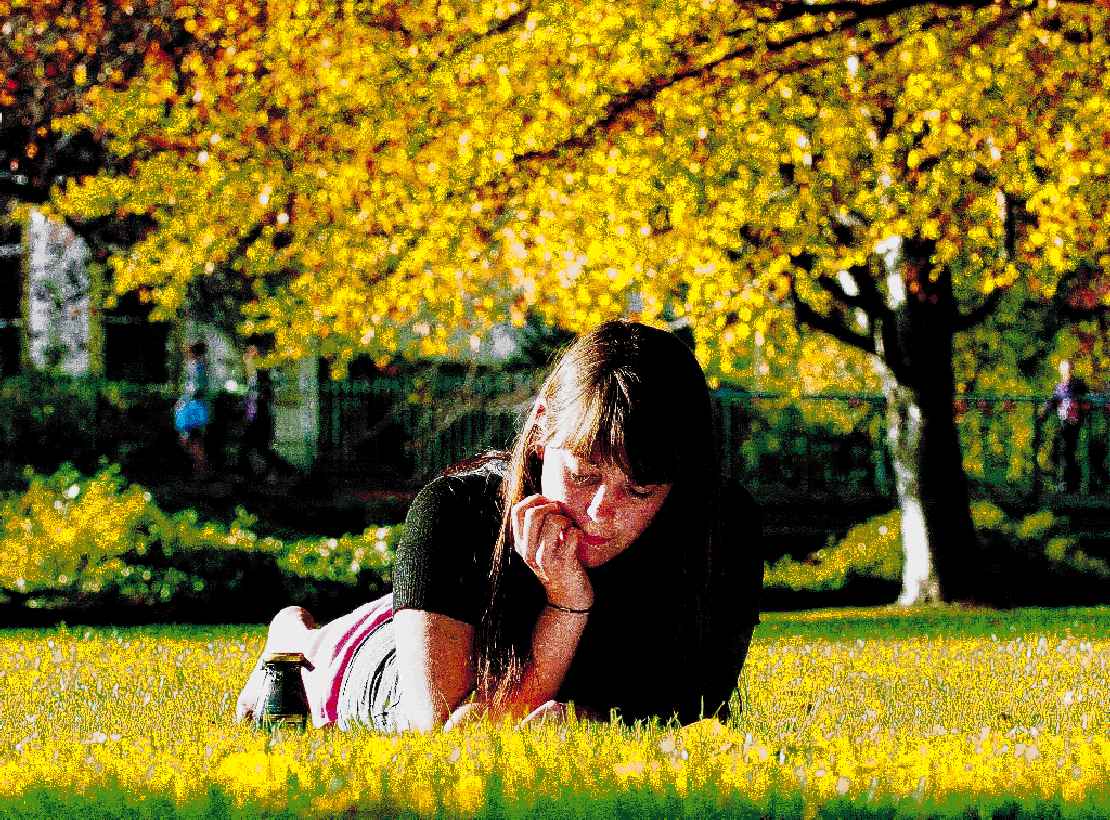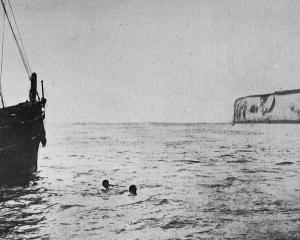

From the nostalgia of movies like Dead Poets Society to Taylor Swift’s 2012 album Red, autumn invites reflection. As the leaves turn and the air cools, students’ mid-semester break offers a shift in the rhythms of study and the mood of our city itself.
I am sure that mid-semester break is a misleading name for many students. The reality for most, however, is far from restful. Assignment due dates beckon, exams loom, time is spent catching up on readings and lectures, and the guilt of unfinished work creeps in.
The break often feels like a balancing act between appreciating the need to rest and battling the sense that you could and should be doing more. It becomes hard to escape the productivity guilt that seems stitched into the fabric of student life.
Dwelling on this feeling only worsens as winter creeps closer, days shorten and light fades earlier. It becomes easy to feel as though time is slipping away ... I have found that the best practice is to acknowledge this feeling.
Perhaps there is something to be said for viewing the break not as a sprint to productivity, but also as a chance to rest. A true break — even a small one — can offer a precious reset, an opportunity to check in with yourself, form new habits and spend time on forgotten hobbies.
Picking up your instrument again, reading something not on the prescribed reading list.
For some, leaving the student bubble aids this reset. Many students escape Dunedin altogether — heading home despite the airfares, or travelling elsewhere with family or friends.
Mid-semester break coincided nicely with one of the two weeks of school holidays; hopefully, those students who did return home got to spend time with their younger siblings.
The change was palpable for those who stayed in Dunedin during the mid-semester break. The usually buzzing streets in north Dunedin quietened. The competition for the best library seats vanished, and the best spots were there for the taking.
For those remaining, spending even a few days off campus or exploring new parts of the city that are usually overlooked provides refreshment.
Mid-semester breaks at the hall in the first year were also nice. The place emptied, and one got a chance to spend more time with those who stayed around.
At Knox, my friends and I felt we had most of a castle for a week. How lucky we were.
This year the slower rhythm of the break felt particularly fitting as Anzac Day and Pope Francis’ death fell during our break, thus providing moments for reflection and remembrance.
Not everyone can afford a proper break. For some students, mid-semester break is when fulltime university pauses and fulltime work kicks in.
Picking up extra shifts becomes necessary in the never-ending struggle to afford rent, groceries and heating bills. It is important to remember that students’ experiences of what a break entails vary widely.
Breaks change as you move through university years, too. First years’ semester one mid-semester break might have felt like an actual holiday, with no classes and no real understanding of the academic mountain ahead.
In later years, the break can feel heavier — a strategic time to get ahead, to finish assignments and lay down some groundwork for exams.
Many brains work on, humming on keyboards, scribbling notes and committing to determined learning while also enjoying breaks together, laughing, talking, catching up in the patches of sun.
Alas, ever lurking in the background is the quiet drumbeat of exams. The timetable has been out for a few weeks, and the countdown has begun.
The university itself is gearing up for an important time, too.
This coming Sunday and Monday, prospective students and their parents will flood the campus, city and hotels, attending academic information sessions and touring the halls. I am looking forward to having my cousin from Melbourne stay to attend these days as a prospective student.
Sunday’s itinerary is smaller; hands-on activities and tours of the hostels. Each hostel will be memorable and appealing to these high school students for different reasons and leave them with exciting decisions to make.
Monday is the biggest day with full programmes of course introductions, expos and walking tours.
Open day is a chance for future students to glean what life here could be like. As a year 13 student, this was a glimpse into what the next year held for me.
As Dunedin edges into winter, our city transforms. The beauty of the orange and red leaves of late autumn remind us that while the seasons shift and pressures build, there is a charm in change.
Electric blankets emerge from cupboards; heaters and heat pumps stand ready for winter’s chill. The walk to uni gets darker and the season mirrors the academic year as we draw inwards and focus on endurance and perseverance.
F. Scott Fitzgerald puts it more poetically than I can in The Great Gatsby: "Life starts all over again when it gets crisp in the fall."
Kind regards,
Grace.
• Dunedin resident Grace Togneri is a fourth-year law student.











